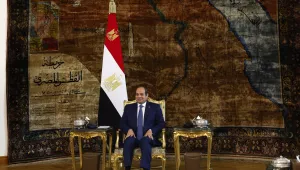Kim Ghattas is an author and analyst with more than twenty years of experience in print and broadcast media, covering the Middle East, international affairs and US foreign policy. She is a contributing writer for the Atlantic magazine and a non-resident senior fellow at the Carnegie Endowment for International Peace. She has reported for the BBC, the Financial Times and de Volkskrant. She is the author of Black Wave: Saudi Arabia, Iran and the Forty Year Rivalry that Unraveled Culture, Religion and Collective Memory in the Middle East , a NYT notable book of 2020 and The Secretary: A Journey with Hillary Clinton from Beirut to the Heart of American Power, a NYT bestseller. She serves on the board of Trustees of the American University of Beirut and on the board of directors of the organisation of Arab Reporters for Investigative Journalism (ARIJ). She was born and raised in Beirut.



